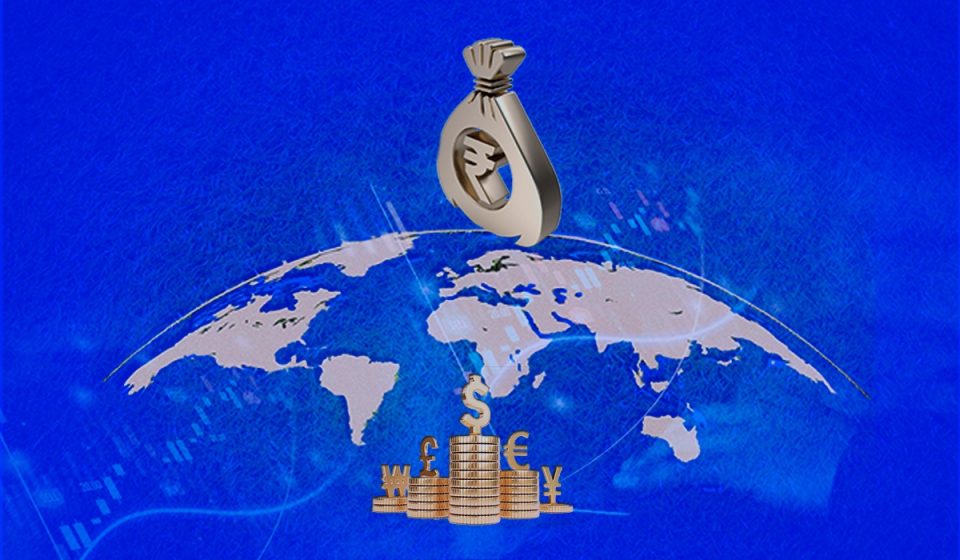What is Forex Trading?
Foreign exchange trading, commonly known as Forex trading, involves the buying and selling of currencies in the foreign exchange market. This market is the largest global financial arena, with a daily trading volume exceeding USD 6 trillion. One of the unique features of Forex is its non-stop operation, running 24 hours a day, five days a week. This constant trading is possible due to the worldwide nature of currency markets, which span across various time zones.
What is the Foreign Exchange Market?
The foreign exchange market is a network of large commercial or investment banks, brokers, and dealers spread worldwide, where one country’s currency is traded for another country’s currency. It has two segments: The Spot Market, where currencies are traded for immediate delivery, and the Forward Market, where delivery is for a future date. Forward exchange rates provide a mechanism for eliminating risks arising in the future due to adverse movements in the exchange rate.
Three participants participate in the forex market: non-banking entities such as importers, exporters, investors, and multinational corporations settle their international transactions, while banking entities, including commercial banks and the Central Bank of the country, play a role in the market. Commercial banks operate for profit motives, while the central bank aims to curb excessive volatility in the exchange rates. Foreign exchange brokers act as a mediator between buyers and sellers.
Exchange rates are quoted for a pair of currencies, and the exchange rate is the price of one currency quoted in terms of another currency. The two ways of quoting exchange rates are direct quote and indirect quote.
Forex Trading in India. Is Forex trading legal in India?
It is legal for Indian citizens to engage in foreign currency trading but only through authorised Indian brokers. Apart from that – The National Stock Exchange (NSE), Bombay Stock Exchange (BSE), Multi Commodity Exchange Stock Exchange (MCX-SX), and NSE’s International Financial Services Centre (IFSC) are some of the recognised and legal forex trading platforms in India. These exchanges offer trading in specific currency pairs such as USD/INR, EUR/INR, JPY/INR, and GBP/INR, and these currency pairs are only allowed for forex trading in India.
To ensure the legality and safety of your trades, it is important to choose a broker authorised and regulated by the Securities and Exchange Board of India (SEBI) and recognised by the Reserve Bank of India (RBI). It’s worth noting that individuals cannot transfer money overseas for forex trading, and all forex transactions must be settled in Indian rupees.
The RBI has set out guidelines that state forex trading can only be done through registered brokers who are members of recognised exchanges such as NSE, BSE, MCX-SX, etc. The maximum amount an individual can transfer overseas for forex trading is USD 250,000 per year.
SEBI is the regulatory body for the securities and commodity market in India, and SEBI Forex Trading Authorisation needs to be authorised as a Forex Broker in India to deal with the financial markets. Forex trading in India is regulated by the Reserve Bank of India (RBI) through the Foreign Exchange Management Act (FEMA) and its various regulations. Individuals and entities interested in forex trading in India must comply with the regulations set forth by the RBI under FEMA, which cover aspects such as the amount of foreign exchange that can be traded, permissible currencies, authorised dealers, and reporting requirements. Further, CFD platforms and binary trading are popular worldwide; they are not legal in India.
Instruments in Indian Forex Trading
Spot Forex Trading is prohibited in India. Forex trading is primarily done through futures and options contracts. NSE Nifty Currency Derivatives and MCX-SX Currency Options offer exchange-traded futures and options contracts for major currency pairs. Forward contracts are directly negotiated between parties to lock in exchange rates for future currency delivery.
In this blog, we have covered the following points related to Forex trading in India:
Fundamentals of Forex Trading:
It is crucial to have a solid understanding of the fundamentals of forex trading, including its meaning, the key players involved, and the potential advantages and risks before diving in. This knowledge will enable potential traders to make informed decisions.
Regulatory principles and instruments in Forex trading in India:
Forex trading is a regulated activity in India, and traders have access to specific tools such as currency futures and options. However, they also need to navigate the regulatory environment, with SEBI and the RBI playing pivotal roles in monitoring forex trading to ensure compliance with the Foreign Exchange Management Act (FEMA) of 1999.
Currency pairs in Indian Forex trading:
India’s forex trading is restricted to specific currency pairs linked with the Indian Rupee (INR), such as USD, JPY, GBP, and EUR. A few cross-currency pairs are also permissible.
Instruments prohibited in India:
Although CFD platforms and binary trading are popular worldwide, they are not legal in India. Participation in such activities can lead to legal complications.
Compliances to follow:
Unapproved forex trading, especially outside recognised exchanges or with non-approved foreign pairs, can result in severe penalties, including hefty fines and imprisonment. This underscores the importance of compliance.
Education of Forex Trading in India:
Therefore, it is essential to educate oneself thoroughly before embarking on the forex trading journey, particularly in a country with strict regulations like India, to make informed decisions.
 Live
Live

